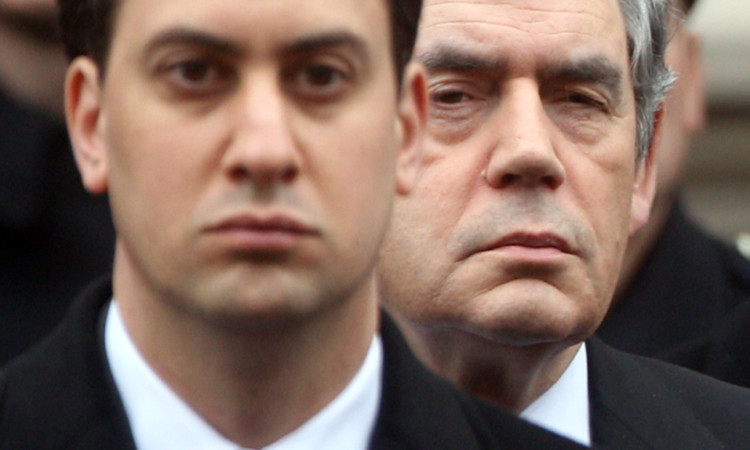
Spin doctor Damian McBride’s memoir is not so much a book as a magic spell.
Like some ancient incantation it has brought forth skeletons rattling out of their political closets and breathed life into demons that many thought had long passed into New Labour legend.
McBride was Gordon Brown’s attack dog.
He was Head of Communications at the Treasury during Brown’s years as chancellor when the MP for Kirkcaldy and Cowdenbeath was driven half mad by his desperation to move from Number 11 Downing Street to the property next door.
And to aid his master in that pursuit, McBride carried out all sorts of covert character assassinations. He also choreographed the coup that would eventually force Tony Blair to quit.
McBride’s new book, aptly titled Power Trip, details the dirty tricks he masterminded.
He apparently forced Home Secretary John Reid to leave government after leaking stories of alleged “carousing and fighting”.
When Charles Clarke was seen as a threat to Brown in the race to replace Blair, McBride set about trashing his reputation with a put-up email war between the then Home Secretary and a key advisor. These were just some of the higher profile victims of McBride’s dark arts.
The rich irony of McBride’s Downing Street career is that after years of rubbishing his own side he then came a cropper and had to quit when he was caught turning his fire on the opposition by peddling smears and lies about key Conservative figures.
The question is does McBride’s tawdry tale matter now?
Clearly the timing is no accident. His publishers are well aware that with Labour conference opening in Brighton today McBride’s memoirs are particularly newsworthy.
But the characters contained within are largely political ghosts these days Tony Blair, Gordon Brown, Charles Clarke and John Reid won’t be in Brighton this week.
However McBride’s story and make no mistake it’s what clich merchants call a rollicking read is relevant because some of those involved are still in circulation.
He claims Shadow Foreign Secretary Douglas Alexander’s fingerprints were on the knife when Gordon Brown cut his twin Wendy loose as Scottish Labour leader.
It would take a special kind of scum to sack his own sister and Douglas Alexander is simply not that man. His denials of McBride’s allegations have been corroborated by other sources.
And then there are the two Eds. Miliband and Balls were as close to the core of Gordon Brown’s operation as McBride. What did they know of his activities?
Miliband’s claim that he knew little or nothing appears plausible, though this episode only piles more pressure on him to deliver a storming speech on Wednesday.
It will have to be strong enough to blow away the stench of New Labour corpses most thought had been buried with Brown’s political career in 2010.
Balls may find it harder to extricate himself from the wreckage wreaked by the book. That may actually present Miliband with an opportunity if he was looking for an excuse to sack his shadow chancellor in the next few weeks. Politics is ruthless after all. But it doesn’t have to be dirty.
And that’s the other reason that McBride’s memoir matters. It will confirm many people’s view that politics is a dirty business conducted by people whose moral compass is awry at best and entirely absent at worst.
That’s wrong. What went on in Downing Street in the Blair and Brown years remains unusual. Like all the best stories Power Trip is interesting because it is extraordinary not everyday.
Spin doctors still stalk the corridors of Westminster and Holyrood and Cardiff come to that but few are as dastardly as Damian McBride.

Enjoy the convenience of having The Sunday Post delivered as a digital ePaper straight to your smartphone, tablet or computer.
Subscribe for only £5.49 a month and enjoy all the benefits of the printed paper as a digital replica.
Subscribe